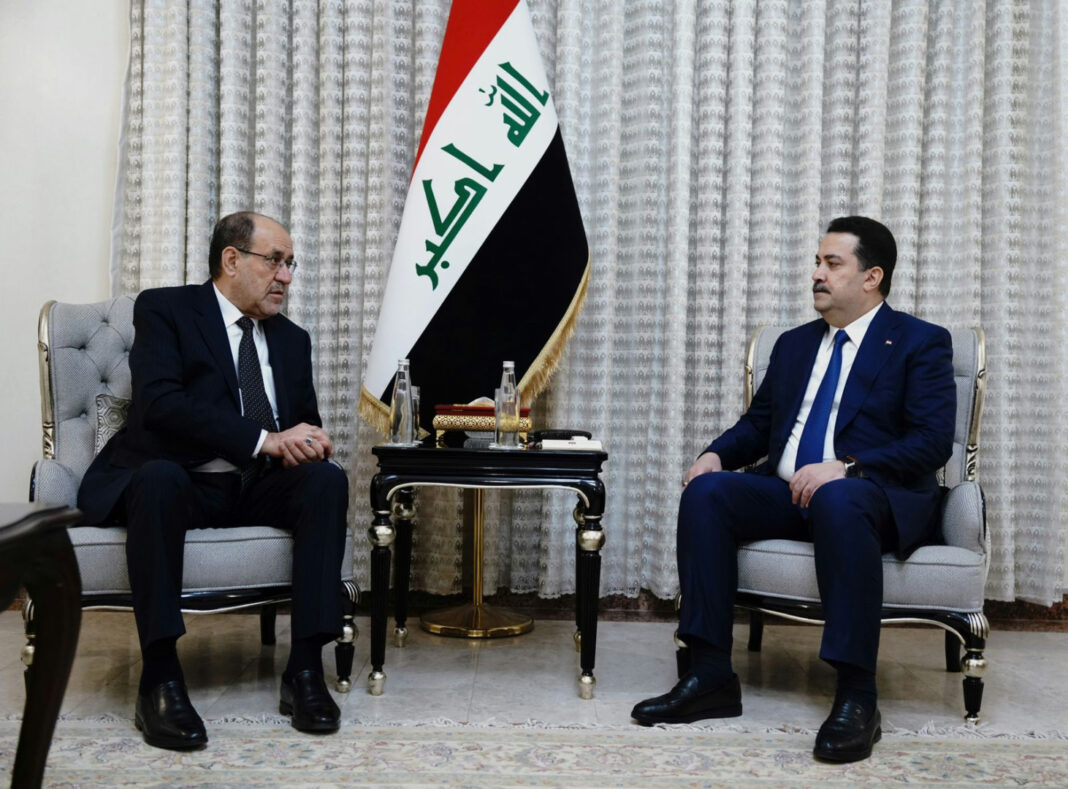The Arab Shiite leadership race is accelerating as Iraq’s leading political figures begin eyeing the prime ministerial seat. Competition within the Shiite bloc is reaching new levels, both among veteran leaders and emerging local officials.
According to Iraqi media reports, this race has split into two distinct fronts. The first involves high-profile members of the Shiite Arab Coordination Framework. These include Nouri al-Maliki, head of the State of Law Coalition, and Prime Minister Mohammed Shia’ al-Sudani. Other contenders include Hadi al-Amiri of the Badr Organization, former Prime Minister Haider al-Abadi, and Naeem al-Aboudi of Asa’ib Ahl al-Haq.
In addition, Abd Hussein Abtan, formerly of the Ministry of Youth and linked to the Hikma Movement, is also positioning himself.
Meanwhile, younger figures are entering the scene with bold ambitions. Leading the second level of this contest are provincial leaders like Basra’s Governor Asaad al-Eidani. He is joined by Wasit’s Governor Mohammed al-Mayahi, a former ally of the Sadr Current.
These younger politicians, meanwhile, aim to present an alternative to Iraq’s established elite. They are promoting administrative experience and promising reform. As a result, their message is resonating with voters frustrated by years of ineffective governance.
Moreover, the Arab Shiite leadership race reflects deeper divisions within Iraq’s political system. Historically, this bloc has struggled to agree on a single candidate. Consequently, these disagreements have often delayed government formation and weakened overall political stability.
During past elections, the bloc’s failure to unify led to fragile power-sharing deals. At times, prime ministers were chosen as compromise figures with limited authority. In other cases, leaders depended on technocrats to balance conflicting political interests.
This time, the stakes appear higher. Veteran leaders bring the support of powerful political networks and armed factions. However, younger candidates are gaining visibility through strong local governance and public outreach.
Political observers believe the competition could reshape Iraq’s broader power structure. The outcome of the Arab Shiite leadership race will influence future coalition talks with Kurdish and Sunni blocs. It may also shape Iraq’s security strategy, foreign policy, and approach to reform.
As the next parliamentary term approaches, all eyes are on the Shiite bloc. Its ability to unite—or its failure to do so—could determine Iraq’s future direction.



